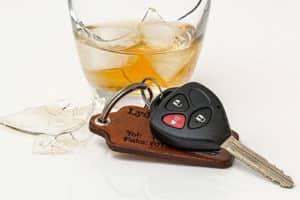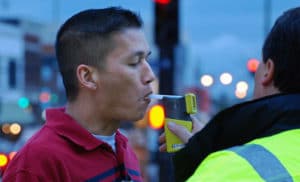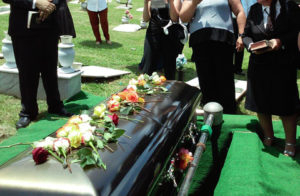Impaired motorists, drivers who get behind the wheel of their vehicles when while under the influence of alcohol, drugs or a combination of both, are responsible for 25 percent of fatal accidents in Florida. These drivers pose a risk to themselves and other people using the state’s highways and roads. If a drunk driving accident has left you injured, you should consult with a DUI accident attorney to pursue a claim for consultation.
It’s no secret that alcohol and driving don’t mix. Despite decades of education and significant progress in reducing this crime, drunk driving is still a serious issue. The Florida Department of Highway Safety and Motor Vehicles reported 5,522 confirmed alcohol-related crashes in 2015 alone. Of those incidents, 1,936 resulted in injury and 460 caused at least one fatality.
What makes drinking and driving particularly heinous, however, is that it’s completely preventable. Injured parties are often innocent motorists, cyclists or even pedestrians who were in the wrong place at the wrong time.
If you’re one of these people, let us first say that we’re truly sorry. Nobody deserves to be put in a position of personal and financial suffering because of someone’s careless actions. If you are the victim, you have recourse to obtain compensation for medical expenses and lost wages that result.
Alarming statistics highlight the dangers of DUI

The most recent statistics compiled by the state of Florida relating to the effects of alcohol and drugs in causing accidents are alarming. There were 5,223 accidents in which a driver was under the influence of alcohol. Drivers impaired by the use of drugs were involved in 617 crashes, and drivers impaired by a combination of drugs and alcohol were involved in 349 accidents.
The death and injury toll from accidents in which drugs and alcohol were factors is equally alarming:
- 446 deaths when alcohol was a factor in the crash
- 322 deaths when drugs were a factor in the accident
- 299 deaths in crashes where drugs or alcohol were a factor
- 3,160 injuries in alcohol-related accidents
- 543 people suffered injuries in drug-related accidents
- 254 injuries in crashes where a combination of drugs and alcohol were a factor
A DUI accident attorney working to secure compensation for an injured victim or for the family of an individual killed in a drunk driving accident must establish that driver who caused the accident was negligent. One way is to prove that the driver was under the influence of drugs or alcohol.
DUI limits – proving impairment

Driving under the influence is a crime. A DUI occurs when someone with a blood alcohol concentration (BAC) of 0.08 percent or higher is driving a motor vehicle or is in “actual physical control” of a motor vehicle. Breath samples, urine samples or blood tests can provide a measure of an individual’s blood alcohol content.
A motorist does not have “the right” to refuse a request by a police officer to submit to a test to determine his or her BAC. Florida has an implied consent law that requires every driver to submit to chemical testing, as long as there is probable cause to believe the person is under the influence. Refusing to submit to a test will subject the drive to penalties, which includes automatic suspension of a driver’s license. Drivers who refuse testing a second time can be subject to criminal charges and longer suspensions.
The legal limit of .08 applies to drivers who are at least 21 years of age. Drivers under 21 are subject to a much lower legal limit of .02. Even if a driver refuses to submit to chemical testing, a DUI offense is still able to be proven through field sobriety testing. A refusal to submit to testing can also be used against a driver to help prove the offense of DUI. The arresting officer may provide testimony concerning signs of driver impairment.
Signs of Driver Impairment:
- Glassy, watery or bloodshot eyes
- Slurred speech
- Dazed expression
- Inability to respond to simple questions or commands
- Lack of concentration
- Inability to focus attention
- An odor of alcohol from the person or the vehicle
- Difficulty standing and walking
The combination of what the police officer observed about the individual’s driving ability and behavior is evidence a judge or jury can consider in determining whether the person was under the influence. Most of these same observations are used when convicting someone of driving under the influence of drugs. Penalties and consequences of a conviction for DUI increase with subsequent offenses.
The following are examples of penalties a judge could impose:
- First offense: A maximum fine of $1,000, up to six months in jail and suspension of driving privileges for up to a year.
- Second offense: A fine up to $2,000, up to nine months in jail and driver’s license suspension for five years.
- Third offense: A fine up to $5,000, up to 12 months in jail and a ten-year suspension of driving privileges.
A judge may also order DUI offenders to install ignition interlock devices on their vehicles. These devices require the driver to blows into a tube to verify that they have not been drinking. If they fail the test, the car will not start.
If you are involved in an accident with an impaired driver
A car accident of any kind is disorienting, much less one with a drunk driver. If you are injured in a car accident with a DUI driver, your health and safety are your top concerns. Remain calm and follow these recommended steps:
- Notify law enforcement immediately and retain a copy of your accident report.
- Seek medical assistance even if your injuries are not immediately apparent. It can often take hours or days to feel the lasting effects of an automobile accident.
- Take photographs of the accident scene and of your injuries. They will be helpful for your case later.
- Document your medical care as well as any related expenses, such as time or travel. Also, make note of any issues related to your recovery.
- Talk to an experienced Tampa attorney to protect your rights.
What happens if you sue a drunk driver
If an accident with a drunken driver leaves you seriously injured, your right to sue for damages depends upon the circumstances of the accident and your injuries. You cannot be 100% at fault for an accident and sue an impaired driver for the crash. However, Florida does allow for comparative negligence on the part of more than one driver. It is possible to pursue punitive damages (money as punishment) against a drunk driver.
In most auto accident cases, Florida requires the injured person to prove a permanent injury in order to seek damages for “pain and suffering.” Your doctor determines permanent injuries by using guidelines published by the American Medical Association and can include assigned impairment as low as 1%. Damages for medical expenses and lost wages do not require proof of a permanent injury. Punitive damages also do not first require proof of a permanent injury.
An experienced DUI accident attorney will manage this type of case somewhat differently than other accident cases. Normally a criminal prosecution will be moving forward separately from your injury case, and an experienced DUI accident attorney will know how to help you navigate the criminal justice system as the “victim” in the case against the drunk driver.
There are also certain advantages in a DUI injury case that can come out of the evidence and court proceedings occurring in the criminal prosecution of the drunk driver. An experienced DUI accident attorney will know how to utilize these things to a client’s advantage in their injury case.
Other Responsible Parties in Your Drunk Driving Accident
When there is evidence proving an impaired driver’s conduct caused an accident there could be other parties who have liability for damages. An investigation by an experienced Tampa personal injury attorney might identify these additional parties. For example, under certain circumstances, a bar or restaurant that served alcoholic drinks to the driver before the accident could be held additionally responsible for damages suffered at the hands of a drunk driver.
Under the Florida dram shop law, a restaurant, bar or other business that willfully and unlawfully serves alcohol to a person who is under 21 years of age or is known to be habitually addicted to alcohol can be held responsible for a drunk driving accident.
Injuries associated with a drunk driving accident
Examples of behaviors associated with driver impairment include speeding, failing to stay in the lane and crossing into oncoming traffic. These factors can lead to car accidents with serious injuries. Some of the most common injuries drunk driving accident victims might suffer include:
- Broken bones and lacerations
- Head trauma and injury to the brain, including concussions, traumatic brain injury and skull fractures
- Back and neck injuries, including damage to the spinal cord, disc herniation, and whiplash
- Muscle, ligament and tendon strain, sprain and tearing
- The seriousness of the injuries could cause the death of an accident victim
Damages awarded to victims of drunk driving accidents
Florida permits the DUI accident attorney representing you to demand economic and non-economic damages on your behalf. These include the following:
- Medical expenses incurred in the past and reasonably likely to be incurred in the future
- Past lost earnings and wages
- Lost earning capacity in the future
- Non-economic damages for “pain and suffering,” including mental anguish, inconvenience, and loss of ability to enjoy life.
The amount of insurance carried by the drunk driver does not necessarily limit the potential damages awarded. Courts can award a judgment against the driver for any damages proven by your attorney.
Under Florida law covering DUI related accidents, it is possible to pursue punitive damages. Punitive damages, as the name implies, involve awards of money to punish a drunk driver for his or her intentional misconduct. As a general rule, your Tampa personal injury attorney would have to produce evidence proving the other party’s conduct was so reckless as it consciously disregarded or showed indifference for the safety of others.

Wrongful death caused by an intoxicated driver
- Spouse of the decedent
- Minor children of the decedent, and all children of the decedent if there is no surviving spouse
- Parents of a deceased minor child or parents of an adult child if there are no other survivors
Drunk driving related accidents are especially difficult on victims and their families. Navigating the complicated and confusing roads that follow such an event are often complicated and frustrating. The right attorney can help significantly in such a difficult time. It’s important to note, wrongful death claims must be filed within two years from the date of death to preserve the claim.
A Tampa personal injury attorney can help
Pursuing a claim for damages caused by the negligence of a drunk driver requires the knowledge and experience of a skilled Tampa personal injury attorney. Select an attorney with the skills to thoroughly investigate and gather evidence to support your claim. This will offer you the best opportunity for success. Contact us today for your complimentary consultation regarding your DUI accident case.



